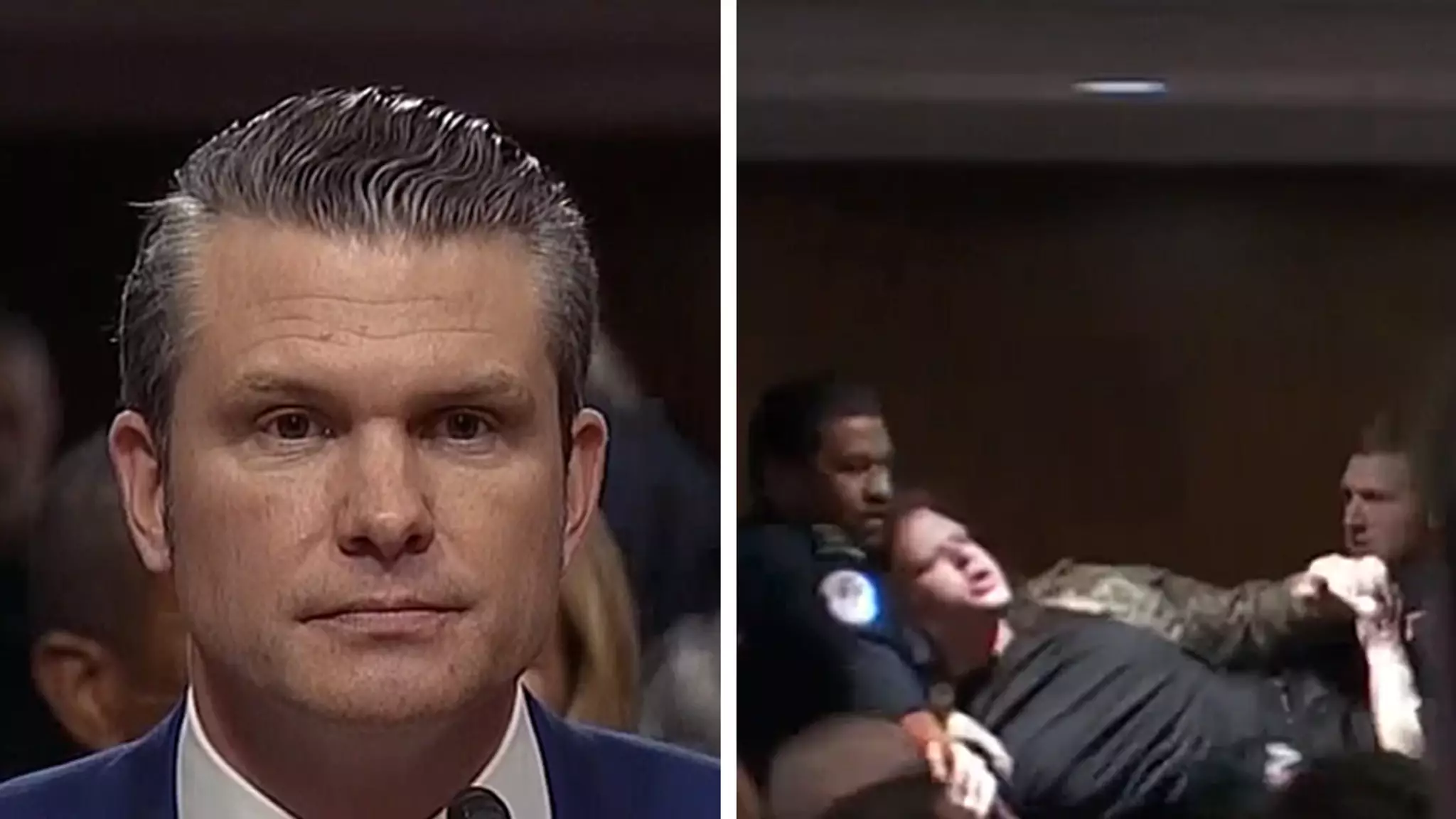The confirmation hearing for Pete Hegseth as U.S. Secretary of Defense under President Donald Trump proved to be an arena not just for political discourse, but for palpable unrest. As Hegseth, a former weekend anchor for Fox News, approached the podium, he likely anticipated scrutiny; however, he may not have fully expected the chaotic protests that would punctuate the proceedings. The event highlighted not just Hegseth’s nomination, but also the tense political climate surrounding his candidacy.
During what should have been a straightforward hearing, multiple protesters disrupted the proceedings. The timing of their interventions was particularly striking; just as Hegseth began expressing gratitude for the support he received, dissent erupted in the form of an elderly man critiquing him harshly. This exchange, where the man labeled Hegseth a “misogynist,” set off a string of events that showcased the deep divisions in American political life. The image of a protester being escorted out underscored the increasingly hostile environment in which political figures must operate today. As tensions flared, three people were removed from the hearing—another indication of how contentious political discourse has become.
In the face of disorder, Hegseth maintained a surprisingly composed demeanor. His ability to remain unflustered amid vociferous opposition demonstrated a certain level of resilience. Rather than falter under pressure, he patiently regained control of the room, continuing his address as if the outbursts were merely a backdrop to his narrative. This calmness, however, raises questions about the disconnect between political leaders and public sentiment. It illustrates a stark contrast: Hegseth’s collected nature against the passionate dissent of the attendees, highlighting his controversial views that provoke such reactions.
The events at the hearing weren’t just random acts of protest; they were likely fueled by Hegseth’s history of provocative statements. His opposition to women serving in combat roles and claims that military standards had been altered to accommodate them resonate deeply in a society still grappling with gender equality issues. This backdrop of controversial opinions not only shaped public perception of Hegseth but also set up an atmosphere charged with expectations of conflict during his confirmation hearing.
Hegseth’s confirmation hearing serves as a microcosm of the broader political landscape: one characterized by passionate advocacy and stark opposition. The chaos reflected not only Hegseth’s personal narrative but also the societal schisms that continue to widen. As America navigates its complex political realities, such events remind us that the voices of dissent are just as pivotal as those of affirmation. With political figures like Hegseth in the spotlight, the question remains: can these individuals navigate the tumultuous waters of modern governance while addressing the diverse spectrum of public opinion? The answer may well shape the future of American leadership.

